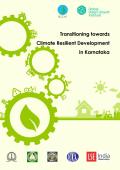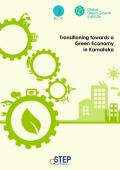This report presents the status of renewable energy employment, both by technology and in selected countries, over the past year. In this second edition, IRENA estimates that renewable energy employed 7.7 million people, directly or indirectly, around the world in 2014 (excluding large hydropower). This is an 18% increase from the number reported the previous year. In addition, IRENA conducted the first-ever global estimate of large hydropower employment, showing approximately 1.5 million direct jobs in the sector.
The 10 countries with the largest renewable energy employment were China, Brazil, the United States, India, Germany, Indonesia, Japan, France, Bangladesh and Colombia. The solar PV industry is the largest renewable energy employer worldwide with 2.5 million jobs, followed by liquid biofuels with 1.8 million jobs, and wind power, which surpassed 1 million jobs for the first time. The employment increase extends across the renewable energy spectrum with solar, wind, biofuels, biomass, biogas and small hydropower all seeing increases in employment.
Across the world, a growing number of governments, regulators, standard-setters and market actors are starting to incorporate sustainability factors into the rules that govern the financial system. The inquiry was established in January 2014 to understand this fast-moving trend and to produce a set of policy options to advance good practice. The Inquiry has worked with a range of partners including central banks, financial institutions and international organisations to highlight a diversity of catalysts and approaches across banking, capital markets, insurance and investment. The Inquiry’s fourth progress report focuses on financial reforms that can reduce the risks of high carbon assets, scale up capital for the low-carbon transition and invest in protecting economies from natural disasters and climate shocks.


The project on Green Growth Strategies for Indian Cities was started in January 2014. Implemented by ICLEI – Local governments for sustainability – South Asia and the National Institute of Urban Affairs (NIUA) with support and technical inputs from the Global Green Growth Institute, the project has now concluded with the launch of its 3 volume report:
Volume 1: Urban Green Growth Strategies for Indian Cities
Volume 2: Green Growth Profiles of Ten Indian Cities (Read more)
Volume 3: Green Growth Good Practices (Read more)
